Economy
War leaves Sudan’s infrastructure shattered, with costly rebuild needed
Destroyed bridges, blackouts, empty water stations and looted hospitals across Sudan bear witness to the devastating impact on infrastructure from two years of war.
Authorities estimate hundreds of billions of dollars’ worth of reconstruction would be needed. Yet there is little chance of that in the short term given continued fighting and drone attacks on power stations, dams and fuel depots.
Not to mention a world becoming more averse to foreign aid, where the biggest donor, the U.S., has slashed assistance.
The Sudanese army and paramilitary Rapid Support Forces (RSF) have been battling since April 2023, with tens of thousands of people killed or injured and about 13 million uprooted in what aid groups call the world’s worst humanitarian crisis.
Residents of the capital, Khartoum, have to endure weekslong power outages, unclean water and overcrowded hospitals. Their airport is burnt out with shells of planes on the runway.
Most of the main buildings in downtown Khartoum are charred and once-wealthy neighborhoods are ghost towns with destroyed cars and unexploded shells dotting the streets.
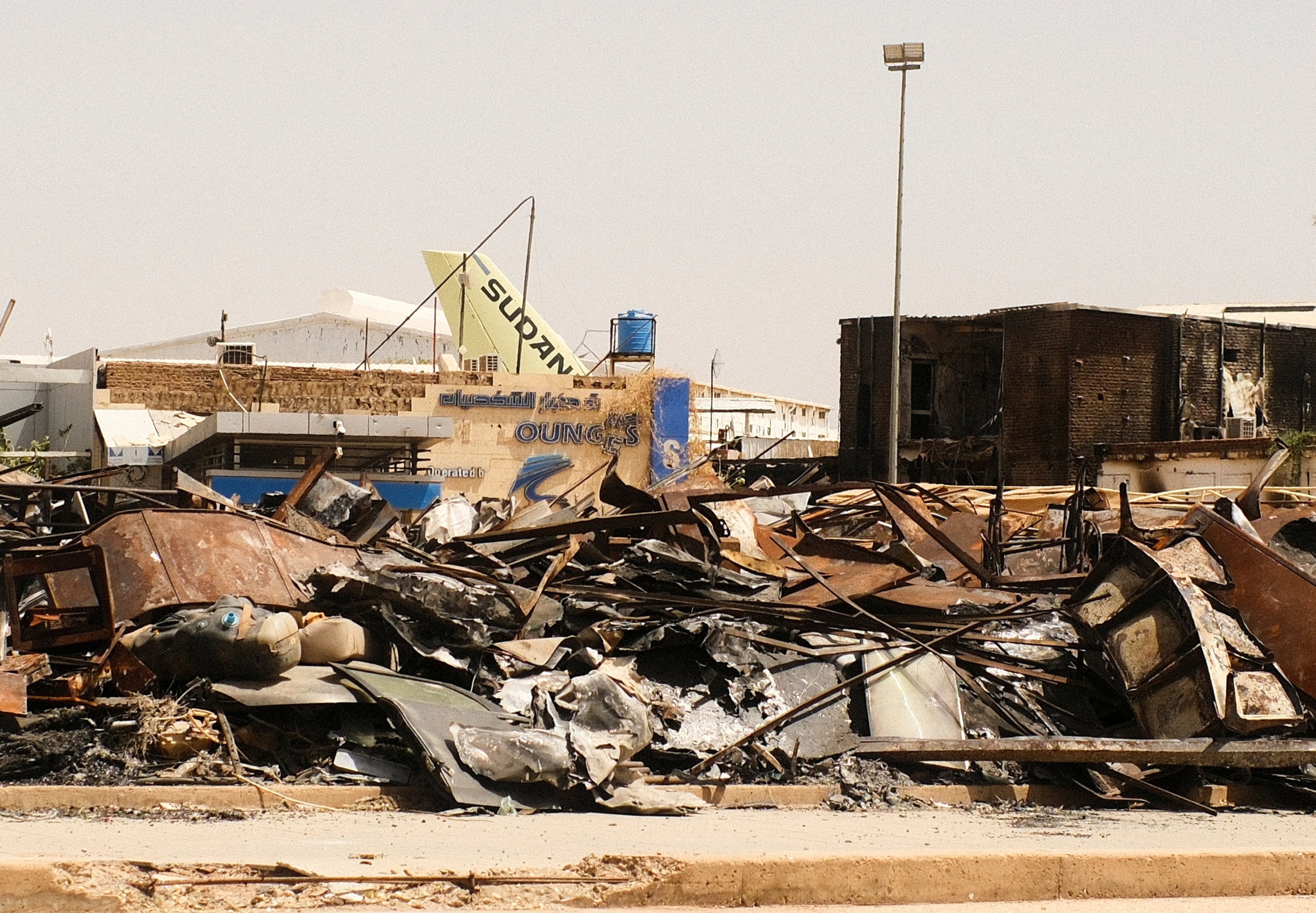
“Khartoum is not habitable. The war has destroyed our life and our country and we feel homeless even though the army is back in control,” said Tariq Ahmed, 56.
He returned briefly to his looted home in the capital before leaving it again, after the army recently pushed the RSF out of Khartoum.
One consequence of the infrastructure breakdown can be seen in a rapid cholera outbreak that has claimed 172 deaths out of 2,729 cases over the past week alone, mainly in Khartoum.
Other parts of central and western Sudan, including the Darfur region, are similarly ravaged by fighting, while the extensive damage in Khartoum, once the center of service provision, reverberates across the country.
Sudanese authorities estimate reconstruction needs at $300 billion for Khartoum and $700 billion for the rest of Sudan.
The U.N. is doing its own estimates.
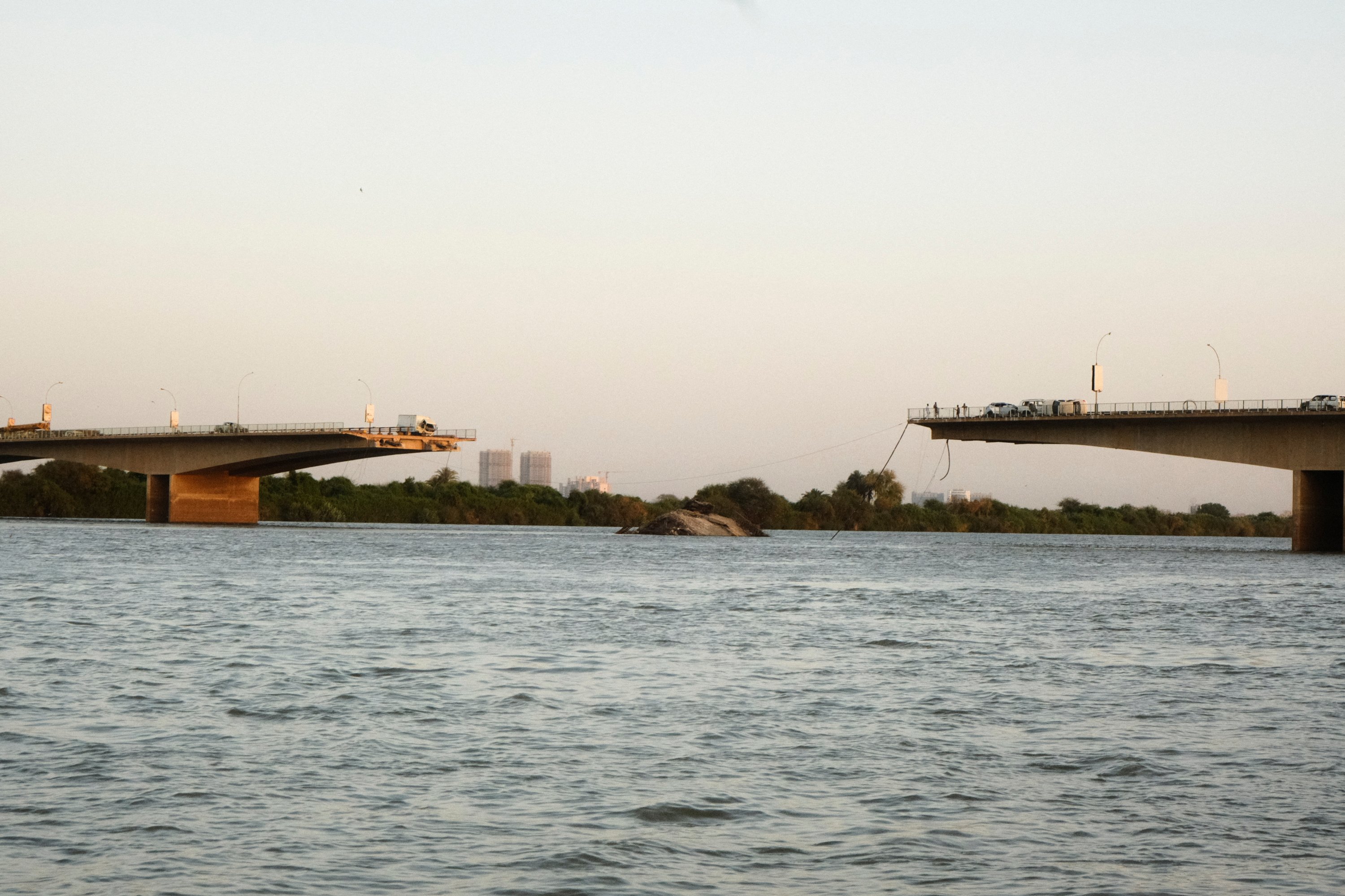
Sudan’s oil production has more than halved to 24,000 barrels-per-day and its refining capabilities ceased as the main al-Jaili oil refinery sustained $3 billion in damages during battles, Oil and Energy Minister Mohieddine Naeem told Reuters.
Without refining capacity, Sudan now exports all its crude and relies on imports, he said. It also struggles to maintain pipelines needed by South Sudan for its own exports.
Earlier this month, drones targeted fuel depots and the airport at the country’s main port city.
All of Khartoum’s power stations have been destroyed, Naeem said. The national electrical company recently announced a plan to increase supply from Egypt to northern Sudan and said earlier in the year that repeated drone attacks to stations outside Khartoum were stretching its ability to keep the grid going.
Looted copper
Government forces retook Khartoum earlier this year and as people return to houses turned upside down by looters, one distinctive feature has been deep holes drilled into walls and roads to uncover valuable copper wire.
On Sudan’s Nile Street, once its busiest throughway, there is a ditch about 1 meter (3 feet) deep and 4 kilometers (2.5 miles) long, stripped of wiring and with traces of burning.
Khartoum’s two main water stations went out of commission early in the war as RSF soldiers looted machinery and used fuel oil to power vehicles, according to Khartoum state spokesperson Altayeb Saadeddine.
Those who have remained in Khartoum resort to drinking water from the Nile or long-forgotten wells, exposing themselves to waterborne illnesses. But there are few hospitals equipped to treat them.
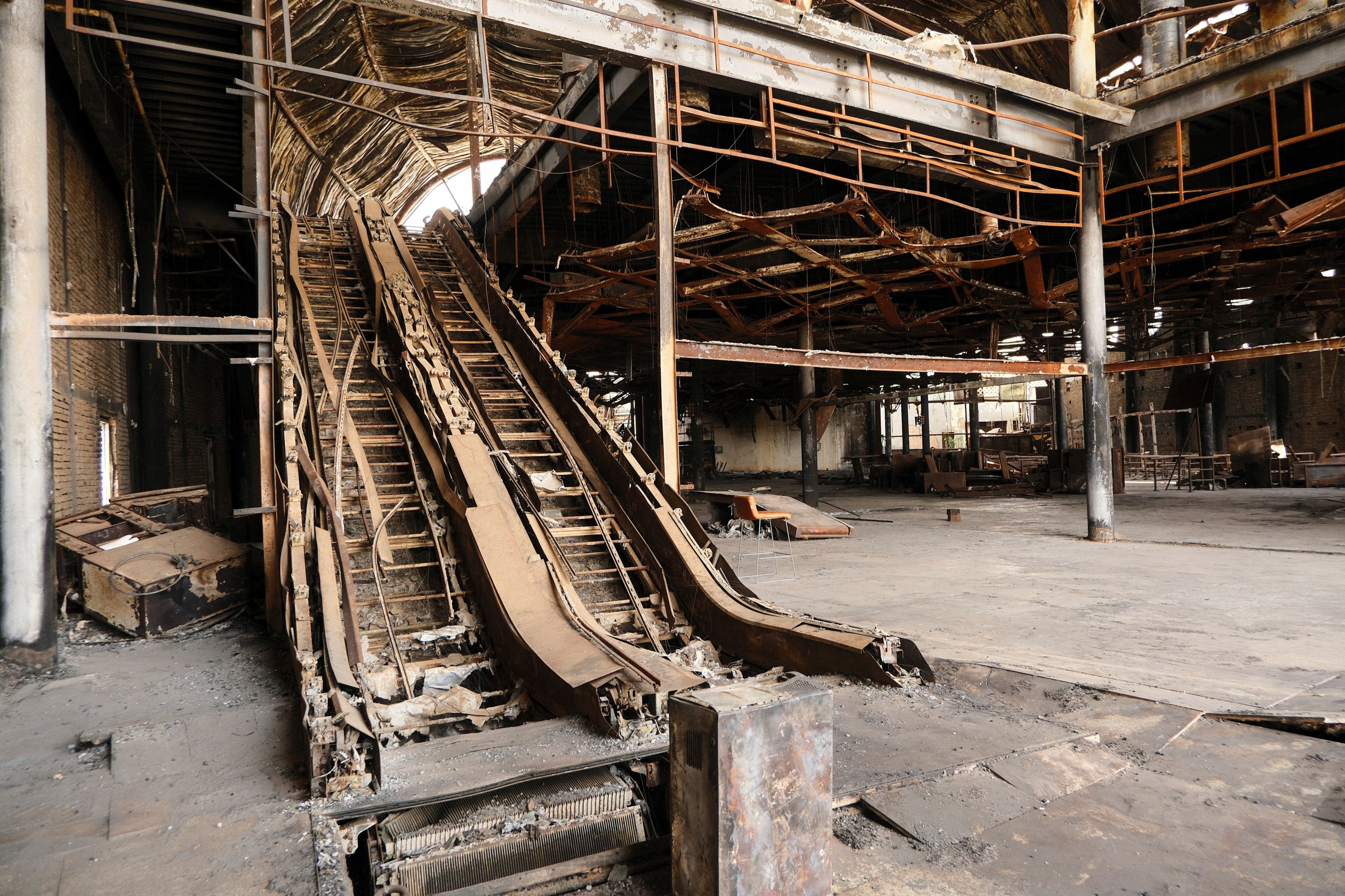
“There has been systematic sabotage by militias against hospitals, and most medical equipment has been looted and what remains has been deliberately destroyed,” said Health Minister Haitham Mohamed Ibrahim, putting losses to the health system at $11 billion.
With two or 3 million people looking to return to Khartoum, interventions were needed to avoid further humanitarian emergencies like the cholera outbreak, said United Nations Development Programme resident representative Luca Renda.
But continued war and limited budget mean a full-scale reconstruction plan is not in the works.
“What we can do … with the capacity we have on the ground, is to look at smaller-scale infrastructure rehabilitation,” he said, like solar-powered water pumps, hospitals, and schools.
In that way, he said, the war may provide an opportunity for decentralizing services away from Khartoum, and pursuing greener energy sources.
Economy
After landslide win, Japan’s Takaichi may struggle to soothe markets
Japanese stocks rose to hit record highs on Monday after Prime Minister Sanae Takaichi’s landslide election win; however, experts warn that the country’s first woman leader could struggle to keep both voters and markets happy.
In its best result since its founding in 1955, Takaichi’s conservative Liberal Democratic Party (LDP) won a two-thirds majority in Sunday’s snap lower house election, according to Japanese media.
With the result, Takaichi, 64, managed to capitalize on her strong popularity since taking the helm of a moribund LDP in October and becoming Japan’s fifth premier in five years.
On Monday, the Nikkei 225 briefly jumped more than 5% to pass 57,000 points for the first time, while the yen strengthened against the dollar.
Analyst Kyle Rodda of Capital.com said the victory handed Takaichi “the mandate she was looking for for her big-spending agenda.”
Equities are “poised to benefit from higher fiscal spending but interest rates that remain accommodative and negative in real terms,” he said.
And SPI Asset Management’s Stephen Innes said: “Politically, the win hands… Takaichi’s freedom of movement and removes the need to bargain every decision down to the lowest common denominator.”
But a major reason for voters deserting the party in past elections was inflation, an unwelcome phenomenon for households after several decades of stable or falling prices.
The cost of rice, for example, doubled in 2025.
Food tax
After a $135-billion stimulus last year, economists said Takaichi’s room for manoeuvre was limited because of market concerns about Japan’s debt, which at more than twice the size of gross domestic product (GDP) is at a higher ratio than any other major economy.
The yen has also weakened, prompting speculation that Japanese authorities – potentially in partnership with U.S. officials – might intervene to provide support.
Off-the-cuff remarks by Takaichi earlier this month talking up the benefits for Japanese exporters of a weaker yen added to pressure on the currency.
In the election campaign, Takaichi floated the idea of suspending a consumption tax on food items, but this sent yields on long-term Japanese bonds to record levels.
On Sunday, she told local media further discussions were needed on such a move, which Bloomberg News reported would cost 5 trillion yen ($32 billion) in lost annual revenue.
“Most parties are in favor of reducing the consumption tax… I strongly want to call for the establishment of a supra-party forum to speed up discussion on this, as it is a big issue,” Takaichi said.
She also reiterated her mantra of having a “responsible and proactive” fiscal policy.
But she added: “We will ensure necessary investments. Public and private sectors must invest. We will build a strong and resilient economy.”
‘Betrayed’
Tetsuo Kotani at the Japan Institute of International Affairs said Takaichi could struggle to keep voters happy and that they could end up feeling “betrayed.”
“In reality, the policies of a Takaichi administration are unlikely to curb the inflation that voters expect her to address,” he warned.
“An income tax hike linked to increased defense spending will also be unavoidable. If these policies lead to a triple decline in stocks, the yen, and government bonds, people’s lives will become even more difficult.”
Takaichi has also pledged to increase defense spending as part of commitments to U.S. President Donald Trump that Japan will be less reliant on Washington.
Kotani said that because of a personnel shortage, linked to Japan’s low birth rate, this will “not amount to a fundamental strengthening of Japan’s defense capabilities.”
Marcel Thieliant at Capital Economics added that he did not expect Takaichi to embark on any new major spending splurges or tax cuts.
“(We) view the recent fiscal expansion as an attempt to bolster public support ahead of the election rather than as a sign of things to come,” he said in a note.
“With Upper House elections not due until 2028, we don’t expect any further major fiscal loosening.”
Hiroshi Shiratori, a politics professor of Hosei University, said Takaichi wanted to emulate the “Abenomics” of former premier Shinzo Abe – her mentor – of big spending and lower interest rates.
“But Abemonics was done at the time of deflation in Japan and a higher yen,” Shiratori said.
“Now is the time of inflation, and the cheaper yen exacerbating inflation, with the market reacting to worries over potential worsening of fiscal conditions,” he said.
“But not all voters understand this logic.”
Economy
Facing US tariffs, South Africa steps toward trade deal with China
China and South Africa inked a framework agreement for a new trade deal on Friday as Africa’s leading economy increasingly weighs other options following the steep import tariffs imposed on it by the U.S. and its diplomatic fallout with the Trump administration.
South Africa’s Ministry of Trade and Industry said the agreement would start negotiations over a deal that would give some South African goods, such as fruit, duty-free access to the Chinese market. The ministry said it expected the trade deal to be finalized by the end of March.
In return, the trade ministry said China will get enhanced investment opportunities in South Africa, where its car sales have seen rapid growth.
The U.S. slapped 30% duties on some South African goods under U.S. President Donald Trump’s reciprocal tariffs policy, one of the higher rates applied across the world. South Africa has said it is still negotiating with the U.S. for a better deal.
The China-South Africa deal follows others looking for alternatives to U.S. partnership in the face of Trump’s aggressive trade policies.
The announcement on the negotiations between China and South Africa came days after Trump issued a short-term renewal of a longstanding free-trade agreement between the U.S. and African nations. The U.S. extended the African Growth and Opportunity Act, which South Africa is a major beneficiary of, just until the end of the year and indicated it would be modified to fit the administration’s America First policy.
China is already South Africa’s largest trade partner for both imports and exports, while Chinese economic influence across the African continent continues to grow and it dominates in the extraction of Africa’s critical minerals that are key components for new high-tech products.
“South Africa looks forward to working with China in a friendly, pragmatic and flexible manner,” the trade ministry said.
Trade and Industry Minister Parks Tau, who traveled to China to sign the agreement, said the deal would benefit South Africa’s mining, agriculture, renewable energy and technology sectors.
U.S.-South Africa diplomatic ties have plunged to their worst point in decades after the Trump administration accused South Africa of pursuing an anti-American foreign policy and allowing the violent persecution of a white minority group at home. South Africa’s government has denied allegations that white Afrikaner farmers are being killed in a widespread effort to seize their land as baseless.
Trump has also barred South Africa from taking part in meetings of the Group of 20 rich and developing nations this year in the U.S.
South Africa’s biggest exports to China are gold, iron ore and platinum-group metals, while Chinese cars have quickly grown their market share in South Africa. Industry groups estimate Chinese brands have grown from around 2.8% of the South African market in 2020 to between 11% and 15% last year.
China’s BYD overtook Elon Musk’s Tesla in 2025 as the world’s biggest electric vehicle maker.
Economy
Ukrainian businesses struggle to stay afloat amid ongoing power cuts
It is early in the morning in the historic Podil district of Ukraine’s capital, Kyiv, and warm light from the Spelta bakery-bistro’s window pierces the darkness outside. On a wooden surface dusted with flour, the baker Oleksandr Kutsenko carefully divides and shapes soft, damp pieces of dough. As he places the first loaves into the oven, a sweet, delicate aroma of fresh bread fills the space.
Seconds later, the lights go out, the ovens switch off, and darkness envelops the room.
Kutsenko, 31, steps outside into the freezing night, switches on a large rectangular generator and the power kicks back in. It’s a pattern that will be repeated many times as the business struggles to keep working through the power outages caused by Russia’s bombing campaign on Ukraine’s energy grid.
“It’s now more than impossible to imagine a Ukrainian business operating without a generator,” said Olha Hrynchuk, the co-founder and head baker of Spelta.
The cost of purchasing and operating generators to overcome power outages is just one of many challenges facing Ukrainian businesses after nearly four years of war. Acute labor shortages due to mobilization and war-related migration, security risks, declining purchasing power and complicated logistics add to the pressure, officials say.
Hrynchuk, 28, opened the bakery 10 months after Russia launched its full-scale invasion in 2022. That winter was the first year Russia targeted Ukraine’s energy system. Hrynchuk says they barely know what it is to work under “normal” conditions, but have never faced the challenges they do now.

on a generator during a blackout caused by Russia’s regular air attacks
on the country’s energy system, Kyiv, Ukraine, Jan. 30, 2026. (AP Photo)
Production is entirely dependent on electricity and the generator burns about 700 hryvnias ($16) worth of fuel per hour.
Hard times
“We run on a generator for 10 to 12 hours a day. You have no fixed schedule, you have to adapt and refuel it at the same time,” Hrynchuk said.
Olha Nasonova, 52, who is head of the Restaurants of Ukraine analytical center, says the industry is experiencing its most difficult period of the past 20 years.
While businesses were prepared for electricity cuts, no one expected such a cold winter and it’s been especially tough for small cafes and family-run establishments, because they have the least financial resources.
The “Best Way to Cup” project, which has two venues and roasts and grinds its own coffee, is on the brink of permanent closure. Co-founder Yana Bilym, 33, who opened the cafe in May, said a Russian attack shattered all its windows and glass doors in August. Bilym said the cost of renovation was 150,000 hryvnias (about $3,400), half of which she financed with a bank loan that she only recently finished repaying.
Last month, after several consecutive large-scale Russian attacks on the energy sector, her entire building lost its water supply, and soon after, the sewer system stopped working.
“We were forced to close. We believe it’s temporary. Businesses in December and January, unfortunately, operate at a loss,” Bilym said.
Now she has to regularly check the coffee machine and the specialty refrigerators, which she fears may not withstand the cold. Bilym hopes the closure is short-term. Her husband volunteered to serve in the military on the front line and she wants him to have somewhere to come back to when he returns to civilian life.
Many businesses have become a lifeline for communities struggling with plunging temperatures. Ukraine’s government has allowed some firms to operate during curfew hours in the energy emergency as “Points of Invincibility,” allowing access to free electricity to charge phones and power banks, drink tea and have some respite from the cold.
Tetiana Abramova, 61, is a founder of the Rito Group, a clothing company that has been producing designer knitwear for men and women since 1991, the year Ukraine became independent.
It participates in Ukraine Fashion Week, the country’s biggest fashion show, and exports garments to the United States. Abramova took out a loan in 2022 to purchase a powerful 35-kilowatt generator costing 500,000 hryvnias ($11,500) to keep the business running during blackouts and a wood-fired boiler for heating.
“At work we have heat, we have water, we have light, and we have each other,” she said.
But it’s not easy. Operating on generators is 15%-20% more expensive than using regular electricity. As a result, production costs are currently about 15% higher than normal. Added to that, customer numbers have dropped by about 40% as many people have left the country, so the focus is now on attracting new clients through online sales.
“Profitability has fallen by around 50%, partly due to power outages,” she said. “This affects both the volume and efficiency of our work. We simply cannot operate as much as we used to.”
A macroeconomic forecast by the Kyiv School of Economics for the first quarter of 2026 says strikes on the energy system are currently the most acute short-term risk to the country’s gross domestic product (GDP).
The analysis suggested that if business manages to adapt, output losses could be limited to around 1% or 2% of GDP. But if the energy system failures are prolonged, it could lead to larger losses, as much as 2% or 3% of GDP.
Abramova, an entrepreneur with more than 30 years of experience, says she spent nearly 100,000 hryvnias ($2,300) over two months on generator servicing to maintain production. But she cannot pass all those costs on to retailers.
“For us now, the main goal is not to be the most efficient, but to survive,” Abramova said.
Economy
Indian farmers concerned after preliminary trade deal with US
Indian farmers have raised concerns that New Delhi has made too many concessions to Washington after the two countries reached a new interim trade deal that would notably lower tariffs following last year’s tensions.
Under the terms of the deal that was laid out in a joint statement from both countries released on Saturday, India will “eliminate or reduce tariffs on all U.S. industrial goods” and other food and agricultural products.
Meanwhile, the U.S. will apply a reciprocal tariff rate of 18% on goods from India, including textiles and apparel, leather and footwear, plastic and rubber, organic chemicals, and certain machinery, the joint statement added.
The terms were released after U.S. President Donald Trump announced a trade deal with India, stating that India’s Prime Minister Narendra Modi had promised to halt Russian oil purchases.
Modi lauded the new trade deal in a post on the social media platform X later on Saturday, saying it would open up opportunities and generate jobs.
But Indian farmer unions weren’t convinced, calling the deal a “total surrender” to American agricultural giants.
“Indian industry, agriculture … are now under grave threat of cheap imports that will be dumped into Indian markets,” the Samyukt Kisan Morcha (SKM), a coalition of multiple farmers’ unions, said in a statement following the announcement.
The group also called on farmers to join a nationwide protest on Feb. 12.
What’s on the table?
The joint statement states that India will “eliminate or reduce” tariffs on a “wide range of U.S. food and agricultural products.”
This includes tree nuts, some fresh fruit, soybean oil, wine, spirits and other “additional products” that were not specified.
Siraj Hussain, a former Agriculture Ministry top official, said Indian consumers were purchasing more nuts, “so it’s import may not have much impact on local production,” and will help satisfy high demand.
Domestic growers do worry, however, about cheap imports on other items such as apples, which they believe could have dire impacts on local producers.
“Import of fresh fruits such as apples … will ruin the farmers,” SKM said.
Officials hope safeguards included in the agreement, such as import quotas or minimum import prices for commodities including apples, will reduce the impact of foreign competition.
New Delhi’s promise of lower duties on dried distillers’ grains and red sorghum for animal feed could also reduce the need for local soybean meal.
Opposition lawmaker Jairam Ramesh said the move to ease imports of dried distillers’ grains and soybean oil would hurt “millions of soybean farmers” in key Indian states such as Maharashtra and Madhya Pradesh.
What’s off the table?
To stem concerns, Indian Trade Minister Piyush Goyal reassured farmers that their interests would be safeguarded, adding that the key red lines that had been drawn by New Delhi had not been crossed.
He said “no concessions” had been extended in “sensitive areas” such as grains, spices, dairy, poultry, meat and several vegetables and fruits, including potatoes, oranges and strawberries.
The trade minister also said genetically modified crops were not part of the agreement.
This includes GM soybean, which the U.S. has searched hard to find new markets for.
Small farms ‘can’t compete’
While the farm sector contributes just 16% to India’s gross domestic product (GDP), it provides livelihood to over 45% of the population.
This makes the industry a key voting bloc often wooed by political parties. Farmer groups have also shown, on multiple occasions, that they are a street force to be reckoned with.
In 2021, the government abandoned plans to reform the sector after months of intense protests that blocked the national capital’s highways and led to Delhi’s historic Red Fort complex being stormed by tractors.
“Indian farms are very small, and they can’t really compete with highly subsidised U.S. agriculture,” Hussain, the former agriculture ministry official, said.
India-U.S. trade
Between January and November 2025, when New Delhi was negotiating with Washington, Indian imports of American agricultural goods rose 34% year-over-year, raking in just under $2.9 billion.
Top imports included cotton, soybean oil, ethanol and various nuts such as almonds. This happened even before the trade deal, although the rise is partly due to India reducing tariffs on some of these U.S. items.
Experts have said that a further reduction in duties for products such as soybean oil, which was announced in the joint statement, will likely lead to a jump in goods being imported by India from the U.S.
Economy
Third Türkiye-China Business Conference held in Istanbul
The third Türkiye-China Business Conference took place in Istanbul on Saturday, hosting business community representatives from both countries and businesspeople.
According to Trade Minister Ömer Bolat, the conference was attended by Ren Hongbin, chairperson of the China Council for the Promotion of International Trade (CCPIT), along with representatives of the business communities of both countries and a large delegation of businesspeople.
“As Türkiye and China enter the 55th year of their diplomatic relations, our expectation from this important meeting is that these contacts will turn into concrete partnerships, new investments, and agreements that enhance the quality of mutual trade,” he wrote on the Turkish social media NSosyal.
Bolat expressed the hope that the conference would help generate new opportunities and lasting cooperation for the business communities of both countries.
Chinese Ambassador to Türkiye Jiang Xuebin said the event was important for exchanging views on advancing economic and trade relations between the two countries.
Recalling Chinese President Xi Jinping’s initiatives on global development, global security, global civilization, and global governance, Xuebin said these initiatives “offer ideas for advancing a more open, inclusive, equitable, balanced, and win-win path of development.”
China is Türkiye’s largest trading partner, said Xuebin at the event, adding that Chinese companies operating in Türkiye actively contribute to the country’s economic and social development through employment and tax revenues.
Wang Kang, vice president of the Export-Import Bank of China, said Türkiye is China’s fourth-largest trading partner in West Asia and its third-largest export market, while China is Türkiye’s second-largest trading partner overall and its largest source of imports.
He noted that Türkiye is among China’s top five investment destinations in West Asia.
“As a bank that plays a role in supporting overseas investment and development, we attach great importance to cooperation with Türkiye,” he concluded.
Economy
US states woo Turkish investors with low-cost energy pitch
U.S. state representatives are working to woo Turkish investors by emphasizing access to low-cost, uninterrupted energy, while seeking to expand cooperation across sectors including energy, chemicals, metals, electronics, aviation and industrial manufacturing.
The outreach took place during the 2026 SelectUSA Roadshow, a U.S. federal government initiative designed to promote foreign direct investment and economic development. Events were held in Istanbul, Kocaeli and Ankara, bringing together Turkish companies and representatives from several U.S. states.
Nathan Lord, president of Shale Crescent USA, said the organization is focused on attracting industrial investment to the shale gas basin covering Ohio, Pennsylvania and West Virginia by highlighting the region’s energy advantage.
Speaking to Anadolu Agency (AA), Lord said energy is one of the largest cost components for heavy industry and that the region offers reliable and affordable power for sectors such as rubber, glass, automotive, steel and petrochemicals.
“If Ohio, West Virginia and Pennsylvania were a country, they would be the world’s third-largest natural gas producer after the rest of the U.S. and Russia,” he said. “The cheapest natural gas and electricity in the U.S. are found in the Shale Crescent USA region. This provides unmatched profitability and supply security for energy-intensive manufacturing.”
Lord said continuous energy supply and favorable market conditions give the region a competitive edge for international investors.
He recalled a conversation with an executive from a multinational company investing in the area. “I’ve built facilities all over the world and always had to choose between being close to energy or close to customers. This is the first place where I don’t have to make that choice, both are here,” Lord said.
“Following our meetings in Türkiye, we believe dozens of Turkish companies will invest in our region,” he added.
‘Europeans talk, but Turks do’
Greg Kozera, marketing director of Shale Crescent USA, said the discovery of shale gas in Ohio, West Virginia and Pennsylvania has sharply increased the region’s attractiveness for foreign investment.
He said abundant, low-cost energy has fueled a revival in manufacturing, particularly in steel and petrochemicals.
Kozera also highlighted the role of infrastructure, praising Türkiye’s ability to complete large-scale projects quickly.
“During my time in Türkiye, I learned how quickly infrastructure investments are completed here. We can’t do that in the U.S.,” he said.
“My advice to Turkish companies is this: If you are a high-energy user, find the energy first. The closer you are to the energy source, the higher your long-term profitability,” he added.
Comparing business environments, Kozera said his recent visits to Türkiye and Europe revealed stark differences.
“Europeans talk, but Turks do,” he said. “Investors in Türkiye are not blocked by the government – they are encouraged. I saw new industrial zones rising along the Istanbul-Ankara corridor. In Europe, facilities are closing.”
“I don’t know what’s happening politically, but what I see is this: Good things are happening here, Europe is struggling, and this is a major opportunity for Türkiye to assume a real leadership role in Europe,” he said.
-
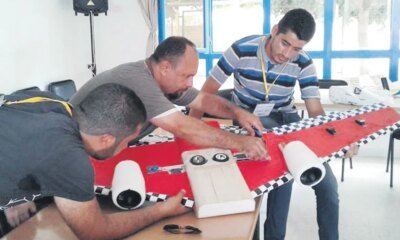
 Daily Agenda2 days ago
Daily Agenda2 days agoHistorical blow from MİT to Mossad: Trade-masked assassination network collapsed
-
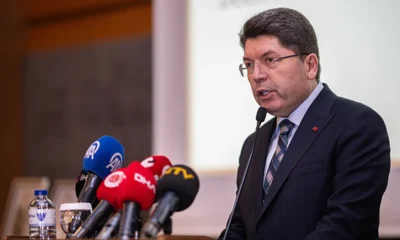
 Daily Agenda15 hours ago
Daily Agenda15 hours agoMinister of Justice Tunç: “The regulation regarding children involved in crime will come to the parliament after the commission works are completed.”
-
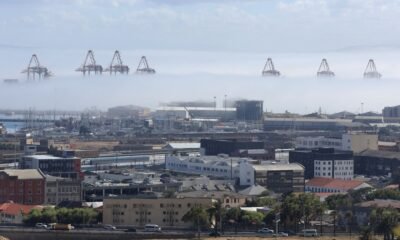
 Economy14 hours ago
Economy14 hours agoFacing US tariffs, South Africa steps toward trade deal with China
-
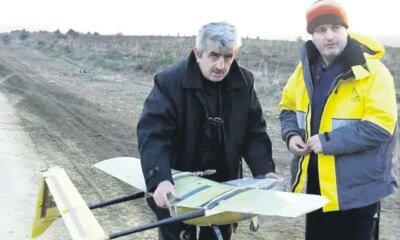
 Daily Agenda1 day ago
Daily Agenda1 day agoA Akıncı passed from this world
-

 Daily Agenda5 hours ago
Daily Agenda5 hours agoImmoral and excessive attack on women
-
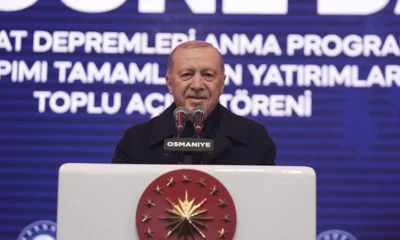
 Daily Agenda3 days ago
Daily Agenda3 days agoBreaking news! President Erdoğan spoke in Osmaniye on February 6: We were reborn to 86 million people, we showed the power of Türkiye!
-

 Sports15 hours ago
Sports15 hours agoTurkish center Alperen Şengün named in 2026 NBA All-Star
-

 Economy1 day ago
Economy1 day agoDanish apps aimed to find, boycott US goods on rise with Greenland crisis




